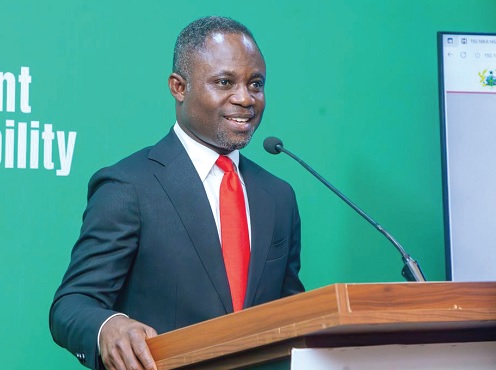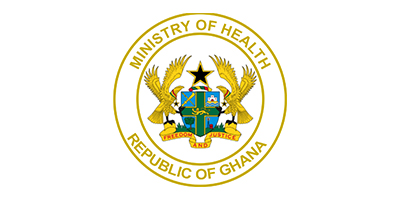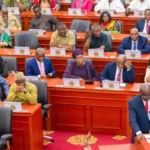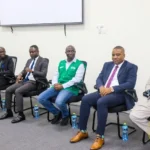
The announcement by Ghana’s Ministry of Health that 13,500 nurses and midwives have been recruited into the health workforce marks a significant moment in the country’s ongoing effort to improve healthcare delivery. At the 19th Biennial Conference of the Ghana Registered Nurses and Midwives Association (GRNMA) held in Tamale on November 19, 2025, Health Minister Kwabena Mintah Akandoh described the move as “a major boost to Ghana’s health workforce.” His words reflect both the scale of the recruitment and the importance of nurses and midwives in the nation’s healthcare system.
For years, Ghana has grappled with challenges in healthcare delivery, ranging from inadequate staffing to delays in salary payments for health professionals. The recruitment of such a large number of nurses and midwives is not only a response to these challenges but also a strategic step toward strengthening frontline healthcare under initiatives such as Free Primary Healthcare and Mahama Cares. Honorable Akandoh emphasized that “nurses and midwives are central to the success of these programmes,” highlighting their indispensable role in ensuring that healthcare reaches communities across the country.
One of the pressing issues addressed during the conference was the delay in salary payments for newly recruited personnel. The Health Minster assured attendees that “all individuals whose salary processes experienced delays will receive their first payment by the end of this month.” This commitment is crucial, as financial stability for healthcare workers directly impacts morale, retention, and the quality of care provided. The acknowledgement of these delays and the promise of resolution demonstrate the government’s recognition of the sacrifices made by health professionals and its responsibility to support them.
The recruitment also represents continuity in policy. Minister Akandoh noted that “in 2025, the Mahama administration successfully concluded the recruitment process initiated by the previous government, enrolling 13,500 nurses and midwives into the government payroll.” This statement reflects a rare moment of bipartisan progress in Ghana’s political landscape, where healthcare delivery has often been subject to shifting priorities. By completing a process begun by a previous administration, the current government signals its commitment to stability and fairness in health sector reforms.
Beyond recruitment and salaries, the Minister addressed broader concerns about the welfare of health professionals. He revealed that the government is considering the negotiated Conditions of Service for inclusion in the 2026 Budget. “The government has strongly considered the negotiated Conditions of Service for implementation in the 2026 budget. This reflects our commitment to continuity, fairness, and the well-being of nurses and midwives,” Minister Akandoh said. This statement reiterates the importance of not only expanding the workforce but also ensuring that those within it are adequately supported, trained, and motivated.

The conference also highlighted the importance of collaboration between the Ministry of Health, labour institutions, and the GRNMA. Honorable Kwabena Akandoh stressed that partnerships are key to addressing issues such as deployment, specialist training, and workforce stability.
“Ongoing collaboration between the Ministry, labour institutions, and the GRNMA is essential to improving healthcare delivery across the country,” he remarked. This emphasis on collaboration reflects a recognition that healthcare challenges cannot be solved by government alone but require the active involvement of professional associations and other stakeholders.
The recruitment of 13,500 nurses and midwives is more than a numerical achievement; it is a human story of individuals who will serve in hospitals, clinics, and communities across Ghana. Each nurse and midwife represents a potential lifeline for patients in need, a source of comfort for families, and a pillar of resilience for the health system. Their presence in the workforce will help address gaps in maternal and child health, emergency care, and preventive services, all of which are critical to achieving universal health coverage.
Yet challenges remain. The healthcare system continues to face issues of infrastructure, resource allocation, and training. The recruitment must therefore be seen as part of a broader strategy rather than an isolated success. The government’s commitment to implementing the negotiated Conditions of Service and ensuring timely salary payments will be vital in sustaining the gains made. Moreover, investment in specialist training and deployment strategies will be necessary to ensure that the workforce is not only large but also skilled and equitably distributed.
The significance of this recruitment extends beyond healthcare. It reflects a broader commitment to social development and national progress. A strong health workforce contributes to productivity, stability, and the overall well-being of the population. By investing in nurses and midwives, Ghana invests in its future, ensuring that communities are healthier, families are supported, and individuals can thrive.
The story of the 13,500 nurses and midwives is ultimately a story of hope and resilience. It is a reminder that progress in healthcare is possible when government, professionals, and communities work together. As Minister Kwabena Akandoh rightly stated, “nurses and midwives are central to the success of these programmes.” Their recruitment is not just a policy decision but a testament to the value placed on human lives and the recognition that healthcare is a fundamental right.
As Ghana looks ahead to 2026 and beyond, the challenge will be to sustain this momentum, address remaining gaps, and ensure that the health workforce is empowered to deliver quality care. The recruitment of 13,500 nurses and midwives is a step in the right direction, but it must be followed by continued investment, collaboration, and commitment. Only then can the promise of universal healthcare become a reality for all Ghanaians.


